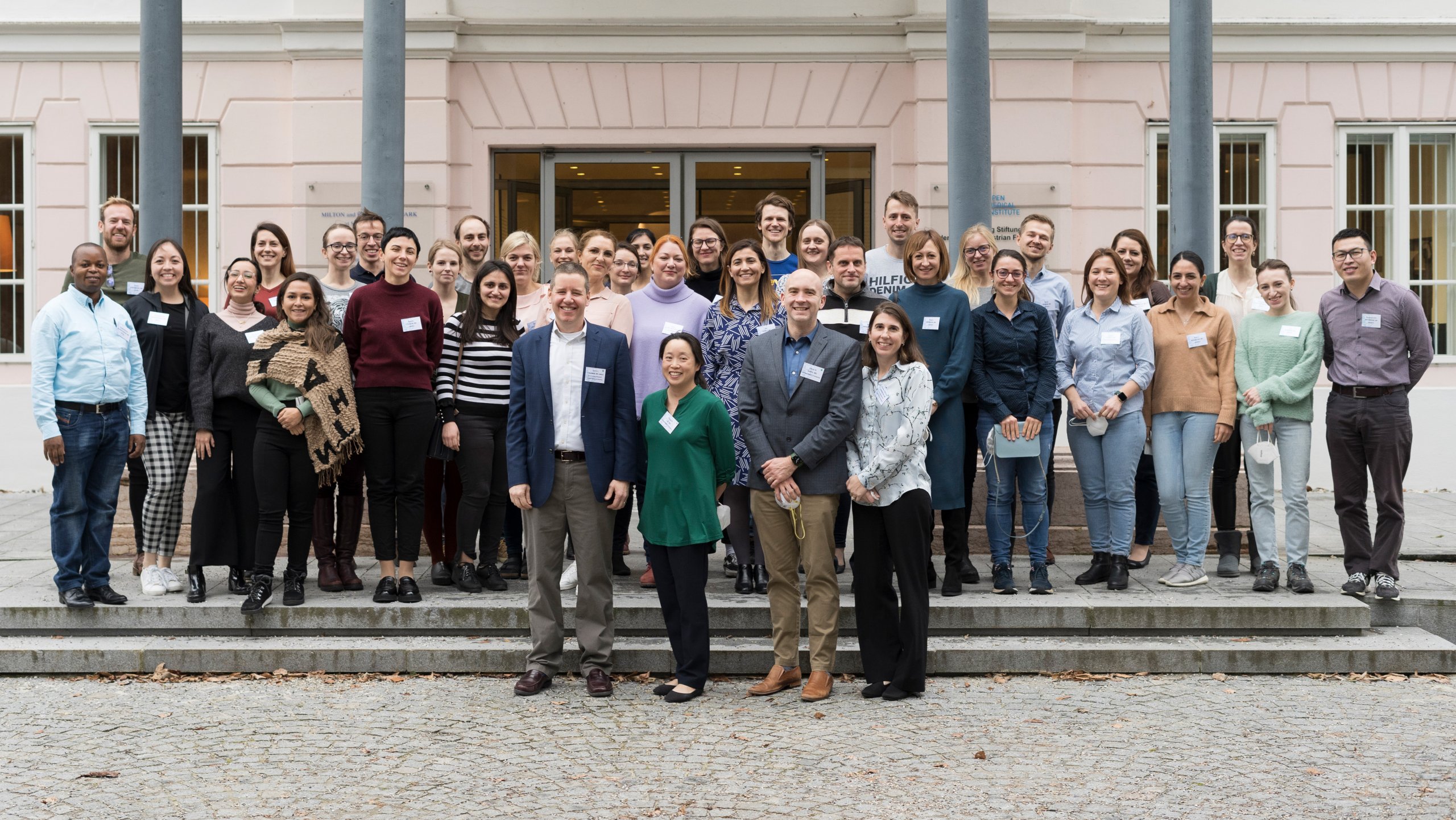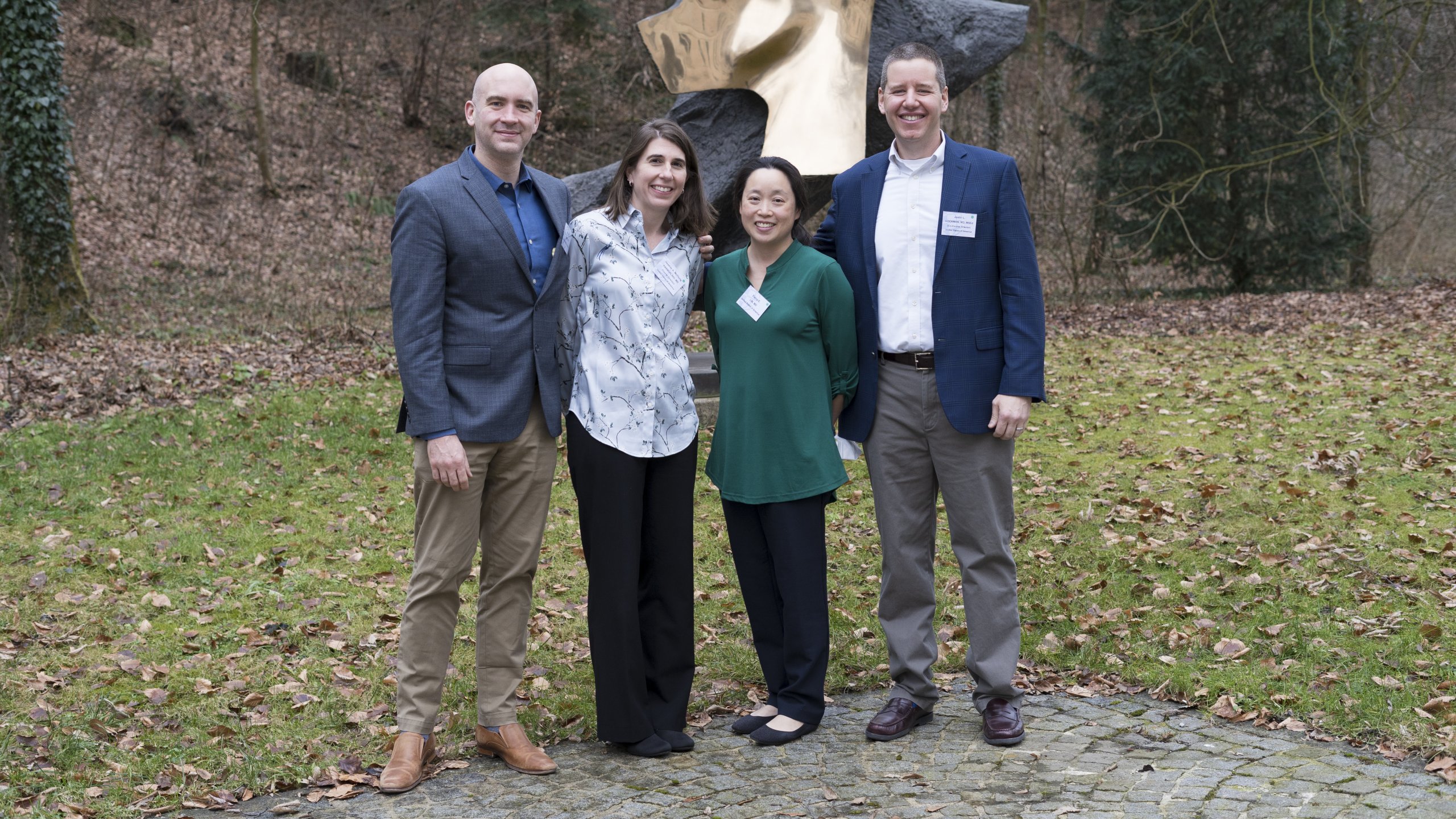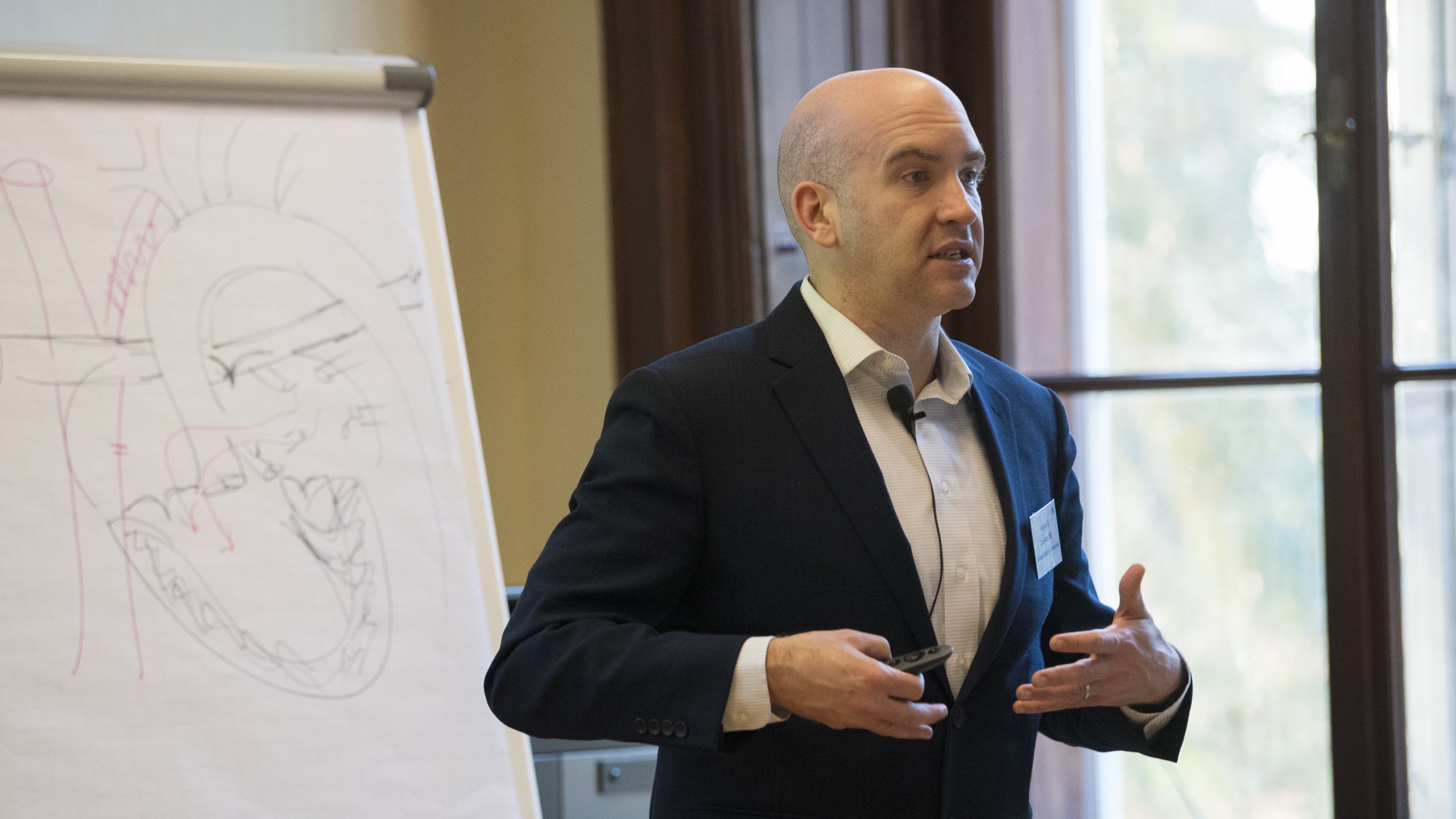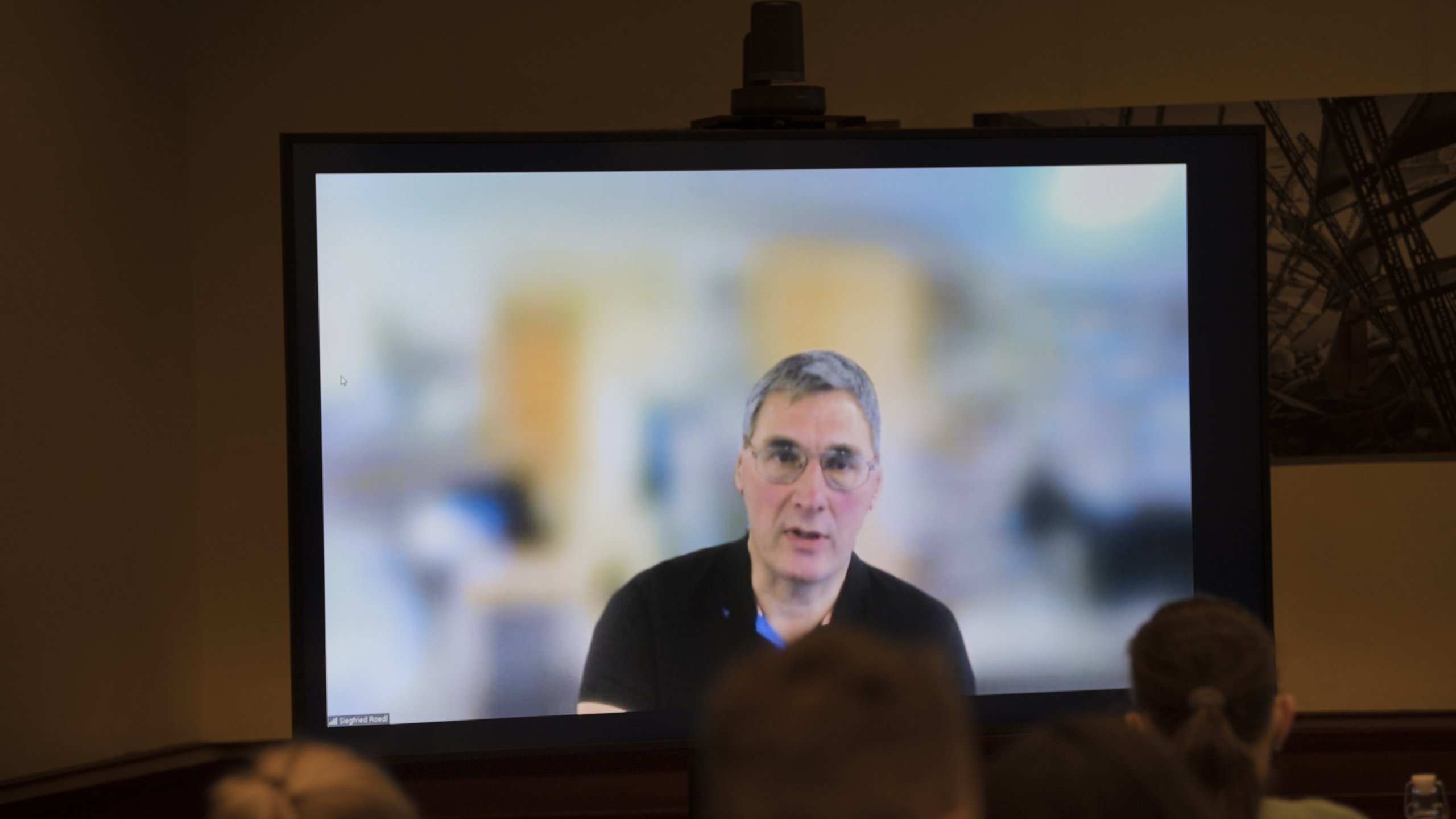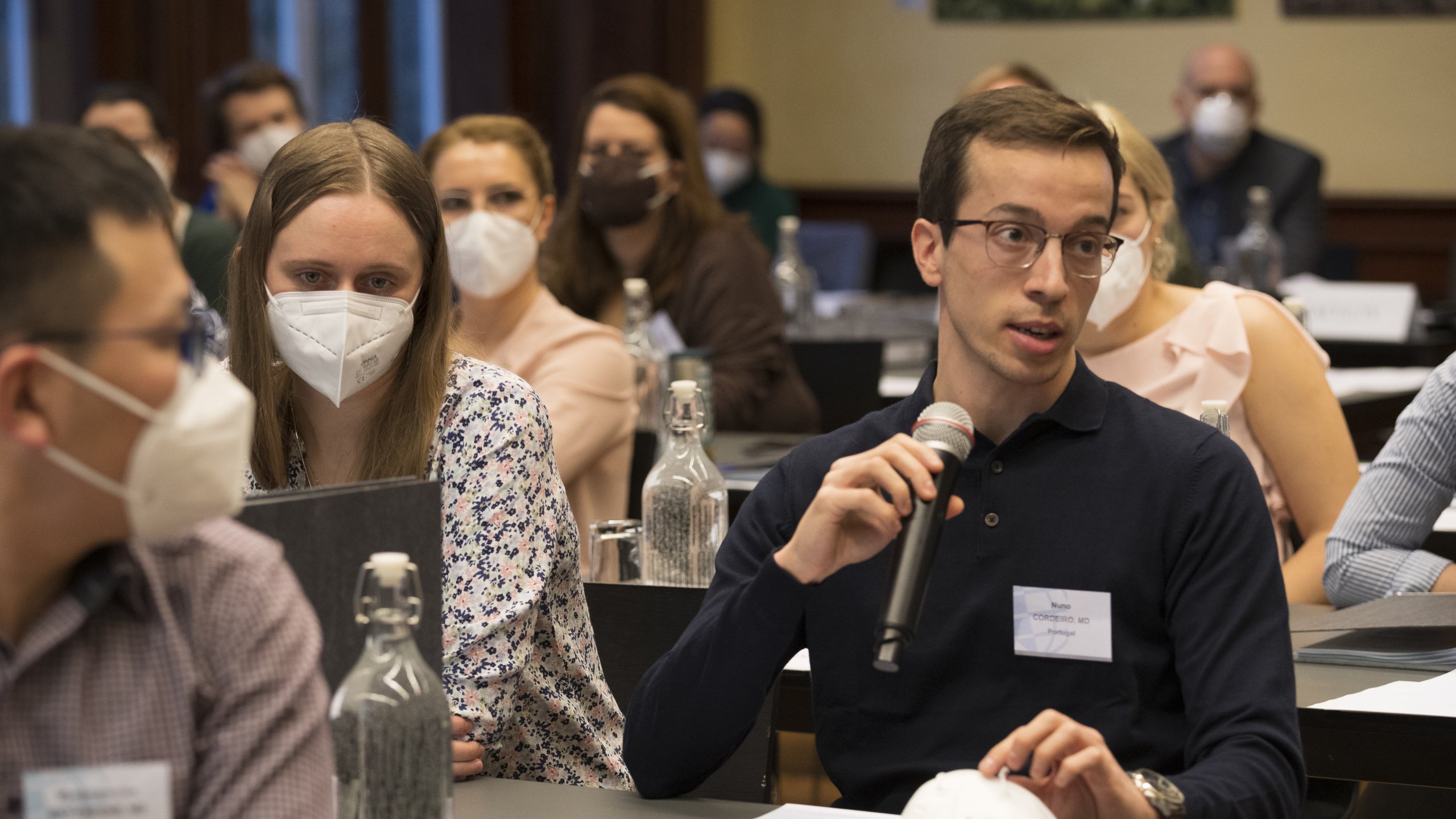The OMI recognizes safety and education as top priorities. In-person education is of the utmost importance, allowing fellows to truly engage in classroom learning, connect with faculty who are experts in their fields, and engage with colleagues from around the world. With that said, the OMI is taking a series of precautions to ensure that everyone stays as safe and healthy as possible. This includes full vaccination and PCR testing, FFP2 masking, newly installed air filtration and disinfection systems, and assigned seating.
Dr. Heather A. McClung Pasqualino led as course director for the week. Dr. Justin L. Lockman and Dr. Siegfried Roedl served as co-course directors, and additional faculty comprised of Dr. Aaron G. DeWitt and Dr. Elaina E. Lin. All US faculty were new to the program, teaching for the first time in an OMI seminar. Dr. Roedl from the Medical University of Graz, who participated for the fifth time, attended remotely. 34 fellows from 22 various countries attended the seminar. Our seminar week started with a birthday celebration on Monday for not just one, but two US faculty members. Dr. Lockman and Dr. DeWitt were even lucky enough to enjoy a Salzburg specialty: Sachertorte.
The seminar schedule comprised of 21 state-of-the-art lectures as well as two workshop afternoons dedicated to fellows sharing case presentations from their own work experience. The course content is based on a three-year curriculum and included topics which ranged from critical care for the anesthesiologist, medication safety, renal replacement therapy, to pediatric burn trauma. Learning objectives for the course included reviewing topics affecting the care and safety of critically ill pediatric patients in both the intensive care unit and the operating room, explaining the unique challenges of caring for neonates requiring general anesthesia, discussing models and techniques for sedation of pediatric patients outside of the operating room, and discussing the value of point of care ultrasound techniques in diagnosing common critical care emergencies.
The week concluded with a formal graduation ceremony and dinner on Friday evening, awarding the fellows with certificates of completion for the 2022 Pediatric Anesthesia and Critical Care seminar.
A lecture that I enjoyed a lot was about medical errors; I was very impressed to see how much effort is put into dealing with this common but often unreported problem. Having a special system that is especially focused on finding, documenting, and preventing common medication errors seems very necessary and I hope that my hospital will get there as well.
The continuous intercultural exchange of medical knowledge and expertise is, in fact, one of the major advantages of the OMI seminars. Not only do we take back home a lot of state-of-the-art medical knowledge, but also a new and huge network of colleagues and friends from all over the world.
